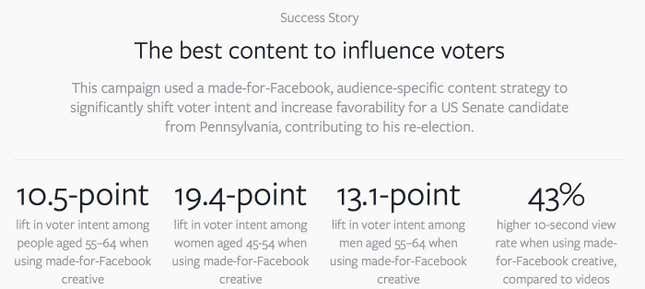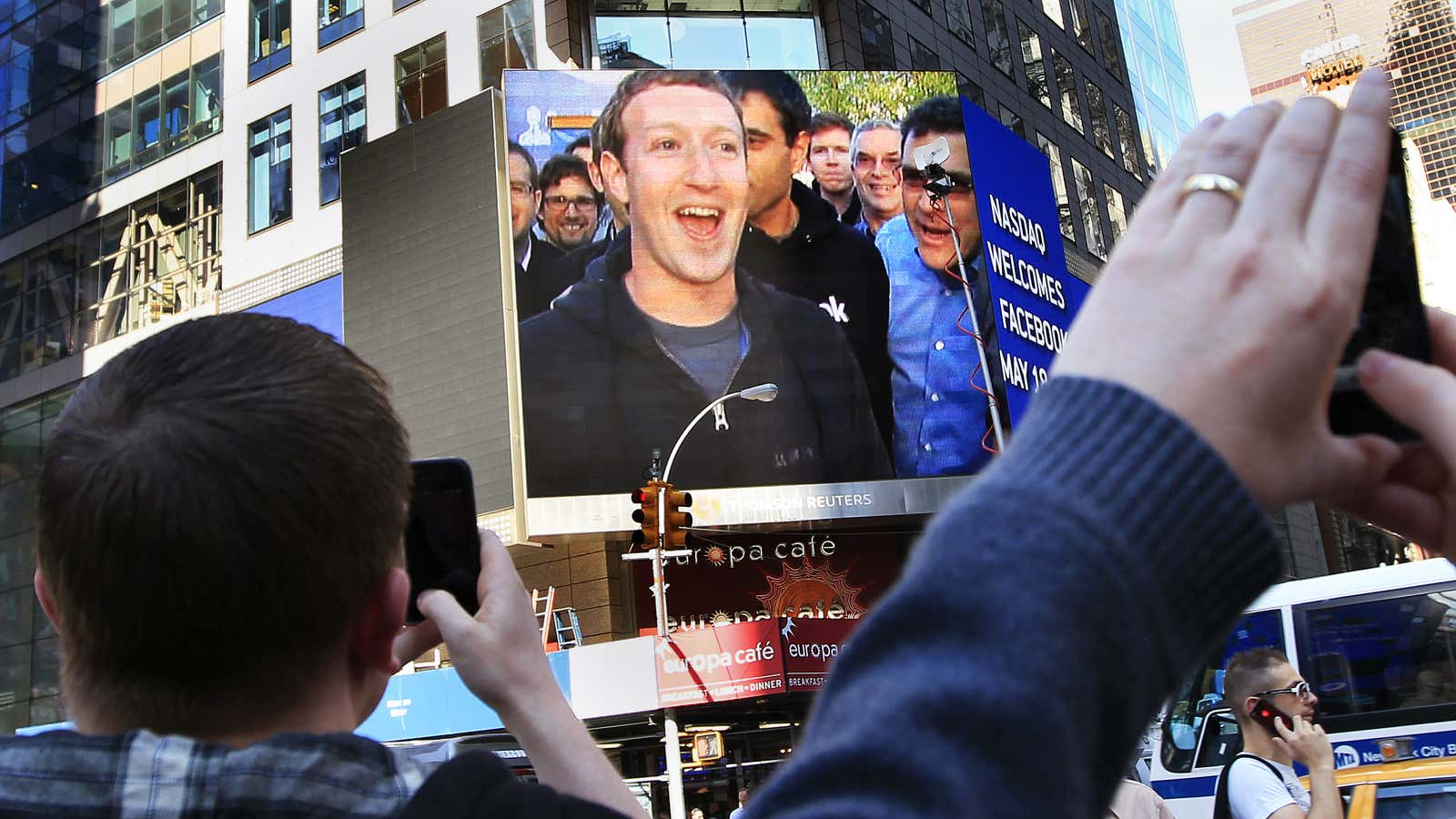From a Harvard dormitory at the ripe age of 20, Mark Zuckerberg created one of the most successful companies of the Internet Age. He is liked and respected by his employees and leads what is probably the Valley’s best run organization. Today, Facebook has become so powerful that it challenges established political structures and threatens to undemocratically twist the will of the people.
I used to greatly admire Mark Zuckerberg. Now, I fear him.
Here’s why.
Facebook is now a supranational company. It spans the globe with about two billion subscribers, its 2016 revenue reached $27.6 billion—54% more than in 2015; it’s immensely profitable (37% of revenue) and cash-rich with $29.5 billion “in the bank.” Decades ago, European Communists complained about “multinationals”—companies whose spread over multiple countries allowed them to escape full accountability in any one location. This was ironic given the Communist Party’s own transnational coordination, taking its marching orders from Moscow. The Party’s hymn, “The Internationale,” sang of borderless solidarity:
Only we, the workers of the worldwide
Great army of labor
Have the right to own the land,
But the parasites—never!
With Facebook, we have a powerful, tentacular entity that’s owned and controlled not by “the workers of the worldwide great army of labor” but a single individual, Mark Zuckerberg. Recall how this gifted negotiator sat across the table from sharp-clawed investors, managed to raise $1.5 billion before Facebook’s 2012 IPO and still retain 27% of the company’s shares—with double voting rights. As a result, he alone has the power to control his creation.
We now turn to the company’s business, one that brings back the internet-age saying: “If the product is free, you are the product.” In Facebook’s case, the company’s increasingly sophisticated algorithms analyze what we click on, at what time of the day, how long we linger on an item, who “Likes” what. Facebook stores—and effectively owns—our messages, the pictures we post, the vacation videos we exchange. For this, Facebook has deployed its own infrastructure, a network of servers of its own design that is, or should be, the envy of the industry. Facebook’s social graph knows more about each one of us than we do; it has infinite recall in time and space.
Today, that refined, tentacular knowledge is sold to advertisers as a superior targeting weapon, as a way to better match products with persuadable buyers. So? What’s wrong with “smartvertisments” that help consumers find exactly the right thing at the lowest price? The concept isn’t new: Google “got there” before Facebook. But take a closer look and you realize that the true goal of advertising isn’t selling, it’s persuasion, bending the target’s will to that of the advertiser’s. (A good source of depressing thoughts on the matter is Vance Packard’s The Hidden Persuaders, published 60 years ago(!) in 1957.)
While persuading a consumer to buy a particular brand of suds seems banal enough, keep in mind the force of Facebook’s algorithms. In order to influence buying decisions, algorithms not only push consumers in a particular direction, they can steer them away from “unwanted” conclusions by injecting biased, partial information that subtly alters the user’s landscape and changes how a product is perceived.
As an example, an algorithm can withhold favorable information on a shampoo’s healing effects on mistreated follicles and, instead, inject a flurry of studies, actual ones, not fraudulent creations, that engender paranoia about the long-term toxicity of an excipient. Buying decision unmade.
Users are kept in individualized bubbles that are tailored according to what Facebook knows of their preferences. No need to face unpleasantness.
This sense of comfort can be exploited, particularly in politics. A similar process can lull users into a comfortable sociopolitical bubble, into a society of like-minded “right-thinking” friends. Once this trust is established, biasing information can be injected in order to change a projected voting decision. False information isn’t required, unpleasant minor facts will suffice if they’re repeatedly echoed from apparently unconnected sources, or from fellows in the same cohort. This “right minded” influence can cast a planned vote in a new light and change the outcome of an election.
A reasonable person might object that this is too far-fetched, that Facebook might oblige a cosmetics advertiser but, surely, it wouldn’t meddle in an electoral process…until they read this Facebook Business Success Story touting “The best content to influence voters”:

Let’s think this through again: Facebook is accountable to no one but Mark Zuckerberg, an immensely intelligent and long-range thinker. His company sells persuasion tools to manufacturers of consumer (and industrial) goods and services producers. These tools are invisible, buried in the bowels of Facebook’s servers. They’re opaque algorithms that offer a pretense of objectivity—it’s just a bunch numbers, after all—while being designed and tuned by humans. We now face the prospect of Facebook selling political influence to the highest bidder, or, worse, to the bidder who is deemed the “most correct” according to the company CEO’s taste and goals.
Was Zuckerberg’s decision to visit all 50 states this year a prelude to a run for office as postulated by so many? What are we to make of the fact that Zuckerberg maintains a staff to curate his Facebook page as well as his and his family’s pictures? Or of his recent 5,735 word “Building Global Community“ manifesto?
That said, I’m not sure Facebook’s creator wants the unpleasantness of running for office. He’s already an unelected supranational leader.
It’ll be interesting to watch how the old crocodiles react to this new creature.
